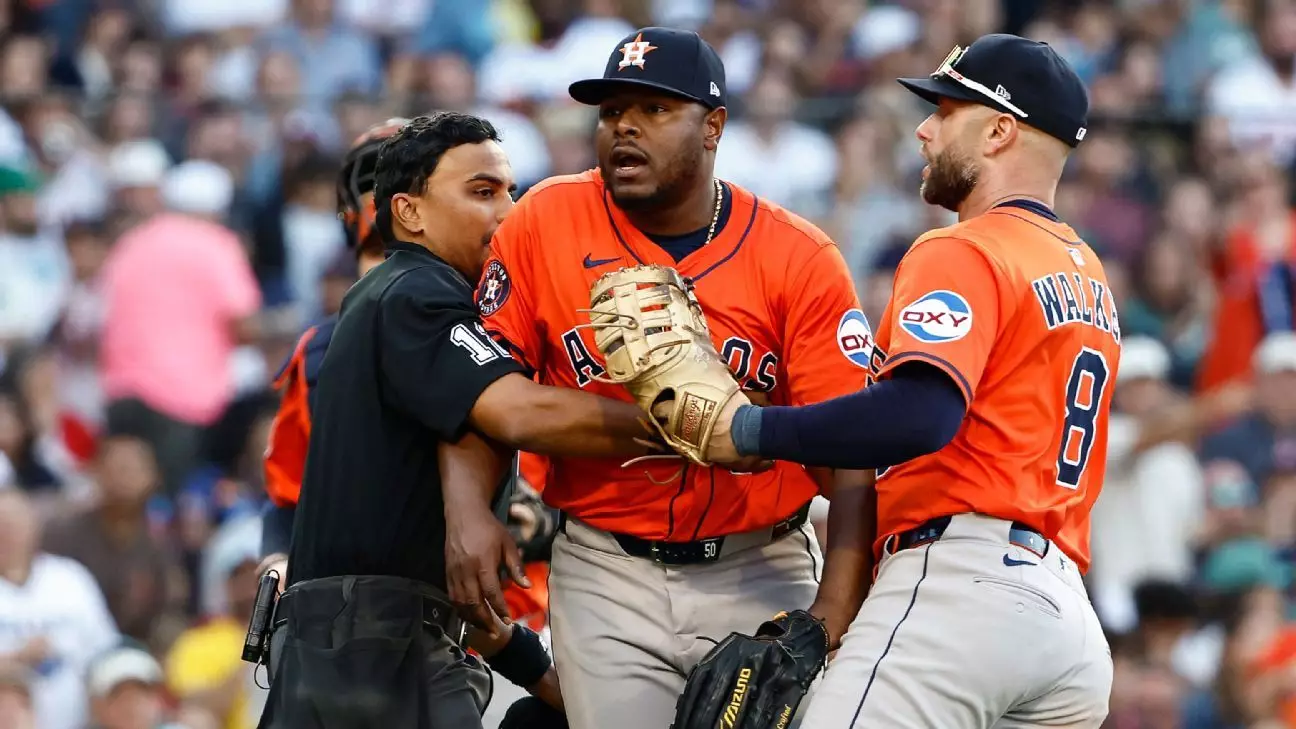Baseball, often celebrated for its strategic finesse and timeless traditions, is also a game fraught with intense moments that test the limits of composure and sportsmanship. The recent incident involving Houston Astros reliever Hector Neris exemplifies how emotions can ignite on the diamond, transforming a straightforward game into a spectacle of confrontations. Such episodes, while seemingly peripheral, expose underlying tensions—whether they stem from competitive pressure, strategic rivalries, or lingering resentments rooted in past controversies. These moments serve as stark reminders that baseball is as much a mental game as it is a physical one.
The Controversial Role of Sign-Stealing
The specter of sign-stealing looms large over this incident, given the history of the Astros’ previous misconduct. Major League Baseball’s investigation revealed the team’s use of electronic equipment to decode opponents’ signals, a practice that undermines fair play. While current technology now restricts such methods, the suspicion persists, especially when players and managers become overly defensive or confrontational. The exchange between Neris and Red Sox third base coach Kyle Hudson hints at this simmering discord. Although Neris hesitated to confirm suspicions, his comments about “maybe yes, maybe no,” reveal how deeply intertwined the issue of sign-stealing is with ongoing team rivalries and player mistrust.
Player Emotions and the Erosion of Composure
Neris’s behavior—balking, shouting, and escalating the situation—underscores the fragility of athlete composure under high-stakes circumstances. In a sport where mental toughness is paramount, allowing frustrations to boil over can have costly consequences, both in terms of game results and team dynamics. These outbursts often serve as venting valves for accumulated stress, but they also risk tarnishing reputations and stirring controversy. The interaction with Hudson was impulsive, yet it reflects a broader challenge players face: maintaining professionalism amid the chaos of competitive sport.
Leadership and the Uncertain Dynamics of Conflict
Managing on-field conflicts is complex, especially when the reasons behind the altercation are ambiguous. Astros manager Joe Espada’s admission of uncertainty about what precipitated the clash highlights how unpredictable these moments are. Meanwhile, the response of Red Sox manager Alex Cora deflecting questions about sign-stealing underscores the layered tensions that exist in modern baseball. Cora’s own history with sign scandals and the lingering mistrust from past investigations add a nuanced backdrop to what might seem like isolated incidents. Such conflicts, therefore, are not merely about the immediate moment but are symptoms of deeper unresolved issues within the sport’s culture.
Ultimately, these heated exchanges reveal the complex emotional landscape of professional baseball. They challenge the perception of the sport as purely skill-driven, exposing the human element that adds unpredictability and drama. While rules and technology are designed to uphold fairness, human passions and the shadow of past controversies continually shape the narrative. Embracing these moments—critically and thoughtfully—can lead to a broader understanding of the sport’s intricacies and the importance of fostering respect, even amid fierce competition.

